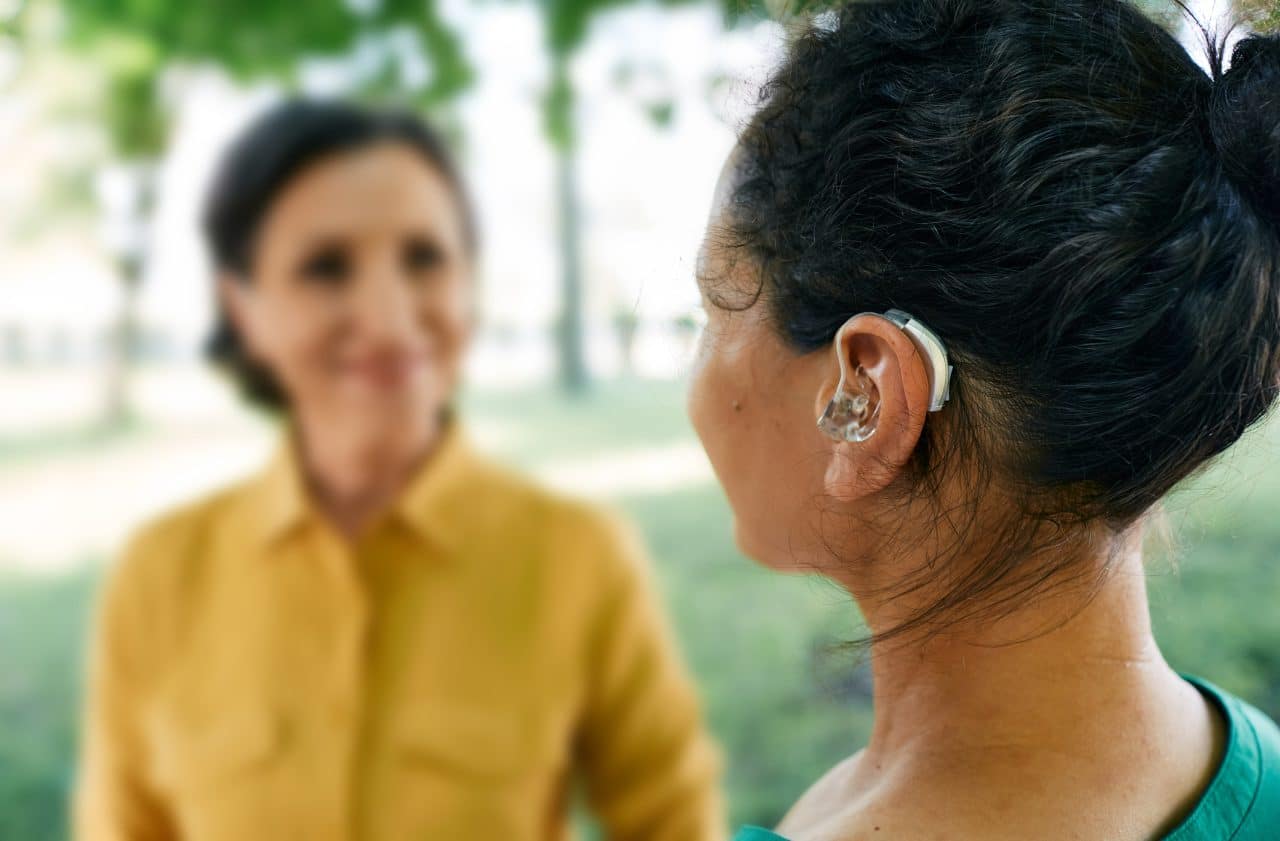Hearing aids are essential medical devices that connect you to the world around you. Because they’re such an important investment, you’ll want to take care of them properly. Below we review the do’s and don’ts of hearing aid care.
Do’s

When it comes to your hearing aids, do:
- Wear them every day. If you’re new to hearing aids, you may be overwhelmed by all the sounds you’re hearing that you were missing before. Even if you can’t yet wear your hearing aids all day long, you should wear them at least for a couple hours every single day, with the goal of eventually wearing them during all waking hours.
- Keep spare batteries on hand. According to the National Library of Medicine, “A battery can last from 3 to 22 days, dependent on the type of hearing aid, frequency of use, required amplification, and any modern modifications that are used.” Because there are so many factors that impact battery life, it can be hard to predict when they’ll die. Having extras on hand will allow you to continue hearing all day long.
- Clean them every night. If hearing aids get dirty or impacted with earwax, it can distort the sound quality. Each night, you should wipe your hearing aids down with a soft, dry cloth, then remove any stubborn debris with your wax pick/wire loop.
- Open the battery door at night. This will allow moisture to evaporate, and it will turn off the devices, extending the battery life.
Don’ts
With your hearing aids, don’t:
- Get them wet. Be sure to remove your hearing aids before showing, sitting in a sauna or swimming at SLO Swim Center, as moisture can be extremely damaging to the intricate technology within the devices.
- Apply aerosols with them in. Take out your hearing aids before applying hairspray, sunscreen, bug spray or any other aerosols, as these chemicals can also be damaging.
- Store your devices in the bathroom. The humidity in the air can damage your hearing aids, and it can be all too easy to splash them when you’re brushing your teeth or accidentally drop them into the toilet.
- Try to repair them yourself. Your audiologist will teach you some basic troubleshooting, but if your devices are obviously broken, they need to be taken to an expert for repair.
For more information on the benefits of hearing aids or to schedule an appointment, call M.K. Larson Audiology today.